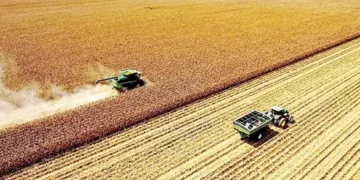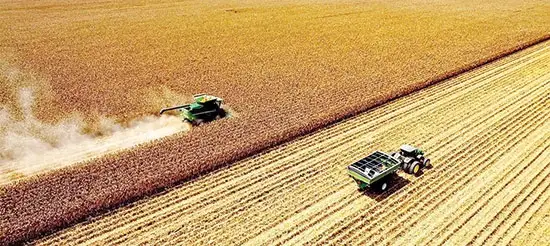Blitz Bureau
NEW DELHI:AFTER Washington imposed steep tariffs on trade partners, American farmers are facing several constraints, including increased costs, shifting markets, and mixed impacts on different agricultural sectors, according to multiple reports.
In his first term as the United States President, Donald Trump had initiated almost similar protectionist trade measures, which led to trading partners slapping retaliatory tariffs. Once again, China has decided not to buy US produce like soybean, American corn, etc.
In 2024, Beijing purchased almost half of America’s soybean exports. Now, it is sourcing its requirements from other nations like Brazil and India. For American corn, while China bought products worth $5.2 billion in 2022, the value fell to about $331 million in 2024.
Overall, US corn exports fell from $18.57 billion to $13.7 billion in this period, said trade reports. The situation remains almost similar for other crops as well.
While demands in key markets are shrinking, production costs are rising. Though the United States Department of Agriculture (USDA) has allocated $10 billion under the Emergency Commodity Assistance Program, farmers continue to face uncertainty. According to reports, the US agricultural trade deficit reached $28.6 billion in the first half of 2025, indicating a significant imbalance in its trade.
Meanwhile, prices of machinery have been increasing through the years, labour has become expensive, and the unpredictable weather has been affecting crop yield.
Unlike in India, American farmers do not benefit from subsidies on fertiliser, electricity, or water. Also, they do not get government support in buying their crop and storing it, as do their Indian counterparts.
Apart from penalising India for buying Russian oil, Washington is putting pressure on New Delhi to open its agriculture sector to American farmers in the bilateral trade negotiations. Now, through a bilateral trade agreement, the United States intends to target India’s market for specific crops and agricultural products like soybean, American corn (maize), cotton, dairy and processed foods, among others.
































